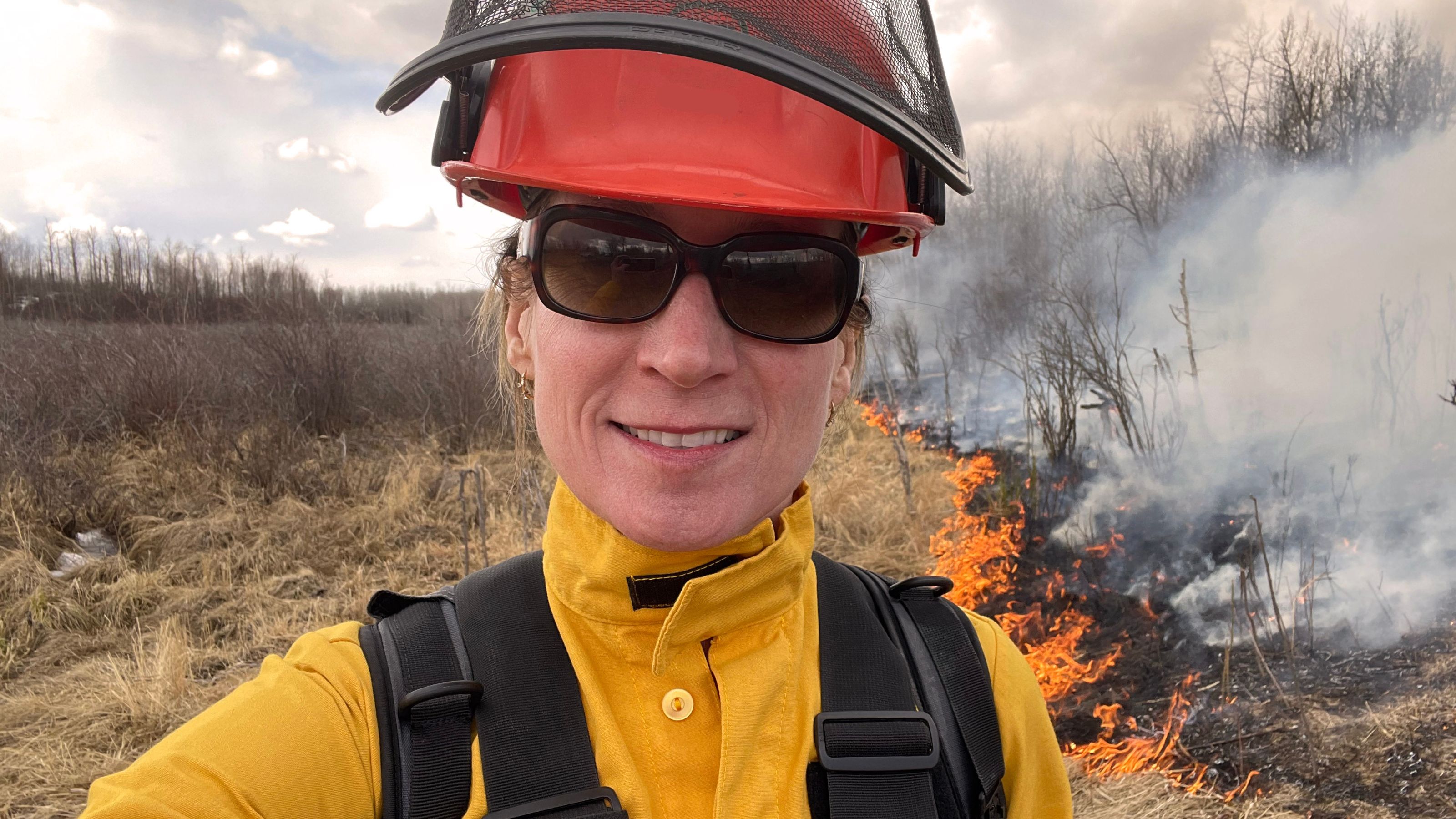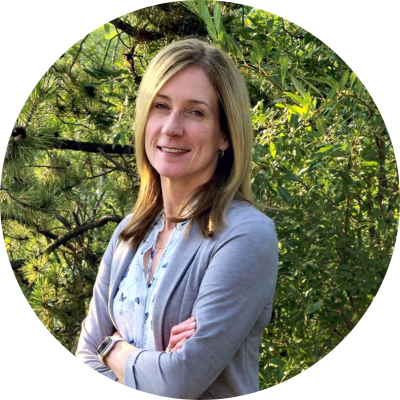Innovator Spotlight: Jen Beverly
August 29, 2024

Jen Beverly, associate professor, Department of Renewable Resources.
How do you describe your work to people who don't work in your field?
I study wildfires. My goal is to give decision-makers useful tools and approaches to ensure people, society and ecosystems thrive in fire-prone areas.
What's one big problem you want to solve through your work?
How to better plan for and prepare for wildfire. And I mean that for everyone involved, including organizations managing fire and the land, emergency management agencies, industrial and critical infrastructure operators, Indigenous and other communities and of course the public at large.
What does the word "innovation" mean to you?
To see and do differently. There’s a lot of pressure to conform and embrace groupthink in science and research. Funding is increasingly tied to large-group research initiatives with a dozen or more collaborators. It’s not uncommon to see publications in wildfire science with 20-plus authors, who apparently all endorse the same thinking, the same ideas, the same interpretations and the same approaches. I make an effort to constantly challenge what I know and how I am looking at the data and the problem, regardless of what others are saying or doing. Hopefully, that means I can offer something unique and insightful.
What's been your biggest a-ha moment — in life or work — so far?
You can learn a lot by doing things manually, slowly, in a hands-on way that might seem terribly inefficient or even behind the times. I’ve seen massive leaps in computing power during my career. Technology makes it easier and easier to explore huge datasets with automated tools that keep the researcher removed from the actual data. Yet the most interesting findings that I’ve generated with my work all involved a very rudimentary, hands-on approach to understanding the data and what it is telling us.
How do you or your team come up with your best ideas?
I think the best ideas tend to come out of nowhere when you least expect them. The key is to allow that creativity and imagination to surface by suspending ingrained beliefs and expectations.
What's your favourite thing about working at the U of A?
The students. I learn so much from them and am constantly inspired by their curiosity and ingenuity.
Do you have a role model at the U of A? How have they influenced you?
Professor Emeritus Ellen Macdonald, who chaired the Department of Renewable Resources 2016-2021. Ellen modeled true academic excellence and integrity, but what impressed me most was her diplomacy and cheerful attitude, even under the most challenging of circumstances.
In Shape: The University Strategic Plan, the University of Alberta commits to having a positive impact on our students and staff, our communities and the communities we serve here in Alberta and around the world. How does the work you do create impact?
My research team is making an impact on communities vulnerable to wildfires. We’ve developed a number of assessment tools that can help communities take proactive measures to protect themselves. These tools are currently being used by communities in multiple provinces across Canada and have been adopted by FireSmart Canada. We’re continuing efforts to build on that work and do more.
What's next for you? Do you have any new projects on the horizon?
We’ve got several really exciting projects on the go and the overall focus is to empower action right now. We’ve developed tools for identifying wildfire routes or pathways and are working on better understanding natural and anthropogenic barriers to fire spread. We’re also investigating vulnerabilities related to critical infrastructure, like communications towers and exploring ways to optimize fire suppression resources, like air tankers. We continue to work closely with a number of communities and are exploring how our wildfire assessment methods could be used to support Indigenous fire management.
About Jen
Jen Beverly is an associate professor at the University of Alberta. She holds MSc and PhD degrees from the University of Toronto and an Honours bachelor of environmental studies from the University of Waterloo. Her research team currently focuses on various aspects of wildfire risk assessment – with the overarching goal of providing decision-makers with tools to ensure social and ecological systems thrive in fire-prone environments. Jen is a fire behaviour specialist, a former helitack crew leader (Ontario Fire Ranger) and a former federal government research scientist.
Innovator Spotlight is a series that introduces you to a faculty or staff member whose discoveries, knowledge and ideas are driving innovation.
Do you know someone at the U of A who is transforming ideas into remarkable realities? Maybe it’s you! We are interested in hearing from people who are helping shape the future, improving quality of life, driving economic growth and diversification and serving the public. We feature people working across all disciplines, whether they are accelerating solutions in energy, shaping the evolving landscape of artificial intelligence or forging new paths in health and Indigenous leadership.
Get in touch at blog@ualberta.ca.